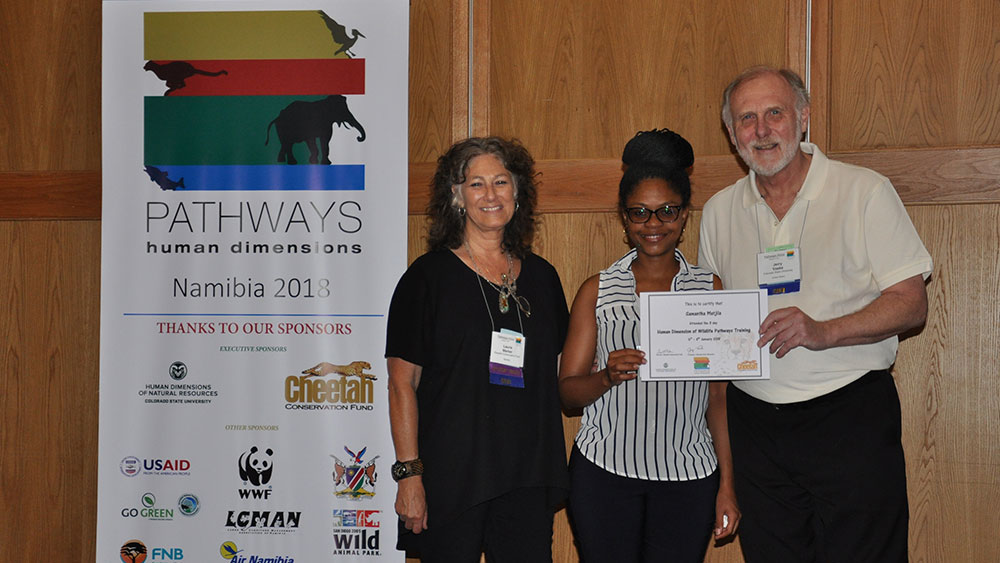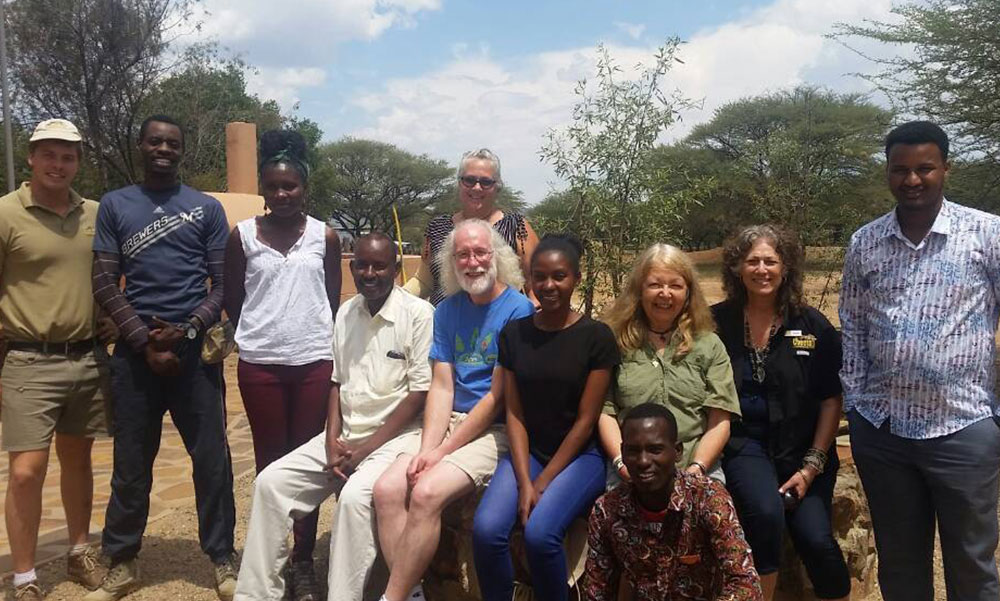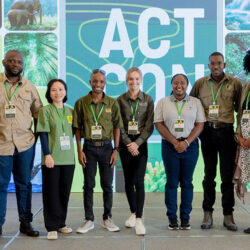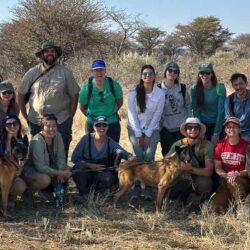African Conservation Conference Provides Critical Training
-

- by Brandy Morenko Campbell June 23, 2021

Summary for Impacts of Human-Dimensions of Wildlife Training on Participants
The African Continent contains over a quarter of all the mammalian species on the planet. It’s rich with biodiversity that is increasingly susceptible to the growing pressures of natural resource utilization by a predominantly rural human population. Protecting and managing its natural resources can be extraordinarily challenging for wildlife conservationists in this part of the world. In order to flex with the changing conservation conditions and implement the most successful strategies, wildlife conservationists must continue to expand their knowledge and share ideas with other colleagues. Associated trainings offered at conferences such as the Pathways Africa Conference held in Windhoek, Namibia in 2018 provided conservationists from around the continent just such an opportunity. One of the important components of the Pathways’ conference is the training workshop that is a part of the conference structure, utilizing some of the international attendees/speakers as trainers for a pre-selected group of trainees.
A paper presenting the findings of the Pathways Africa Training in 2018, Impacts of Human-Dimensions of Wildlife Training on Participants, by Annetjie Siyaya, Courtney Hughes, Wesley R. White, Claire M. Nitsche & Laurie Marker in the Journal of Human Dimensions of Wildlife, was recently published. This paper assessed the effectiveness of the training with regard to:
- enhanced knowledge and skills
- application to current or future conservation challenges
- participants’ intention to share information from the training back in their countries
The 42 trainees, selected from nine African countries, represented 32 different organizations (government and non-government). Pre and post workshop participants were queried on their greatest challenges in working with community wildlife conservation in the field, and the usefulness of the training that was provided to them.
The workshop survey showed that the greatest concerns were associated with human wildlife conflicts, financial compensation for livestock loss, and overuse of natural resources. It was largely agreed upon that wildlife and natural resources should be prioritized in community-based natural resource management.
Sixty-six percent of the participants strongly agreed that the knowledge and skills would be applicable before and after training, irrespective of gender or qualification. Participants felt that the knowledge gained at the training improved their confidence and skills in community engagement, conflict resolution, leadership, and management. Importantly, most were optimistic that they would be able to use the skills they learned to achieve a balanced co-existence with wildlife.

This in-person conservation training opportunity provided networking, academic resources, access to experts, and attendance scholarships, which were essential for those from the various African countries who were working in human wildlife conflict management and conservation. This paper highlighted and confirmed the importance of training and bring conservation and management strategies to local communities to meet individual needs. Workshops such as the Pathways Africa Training are imperative to closing information gaps that exist uniquely on the African continent. They are vital to creating a sustainable future with wildlife and must remain a top priority in wildlife conservation.
Related Reading
-
August 27, 2025
Sniffing Out Stories with the Scat Detection Dog Team




